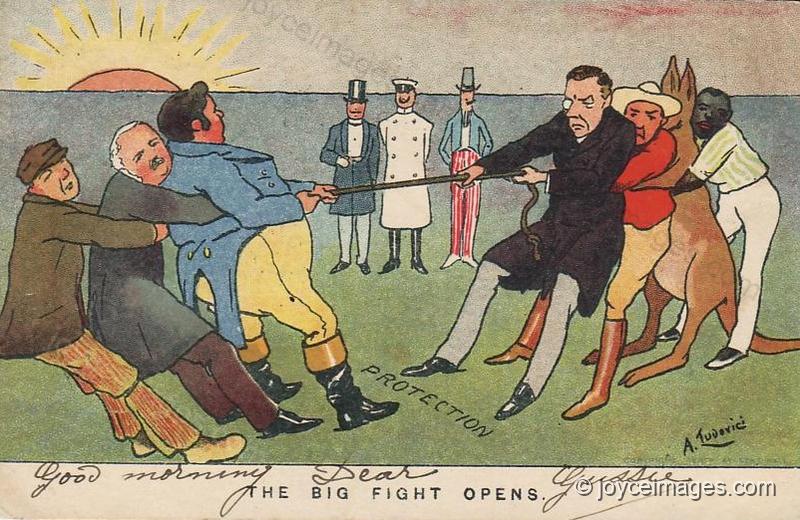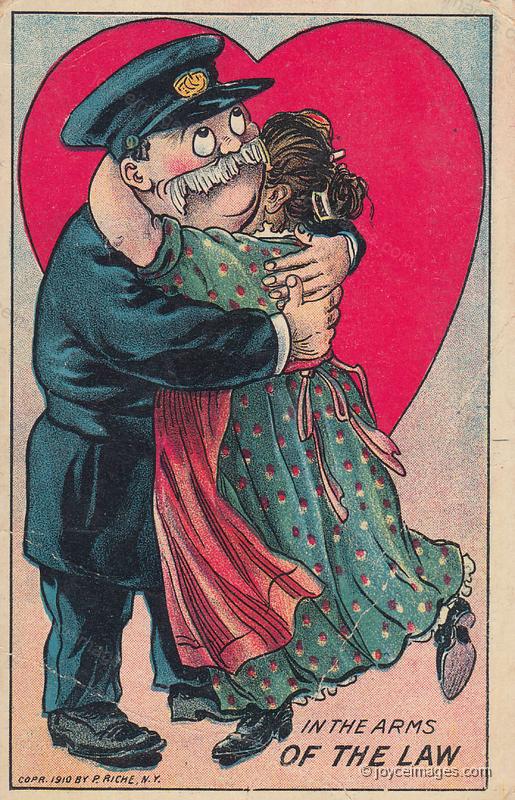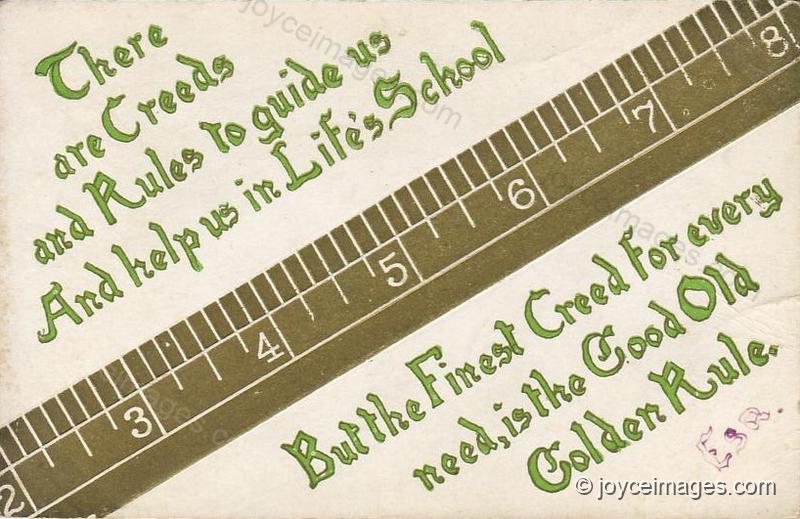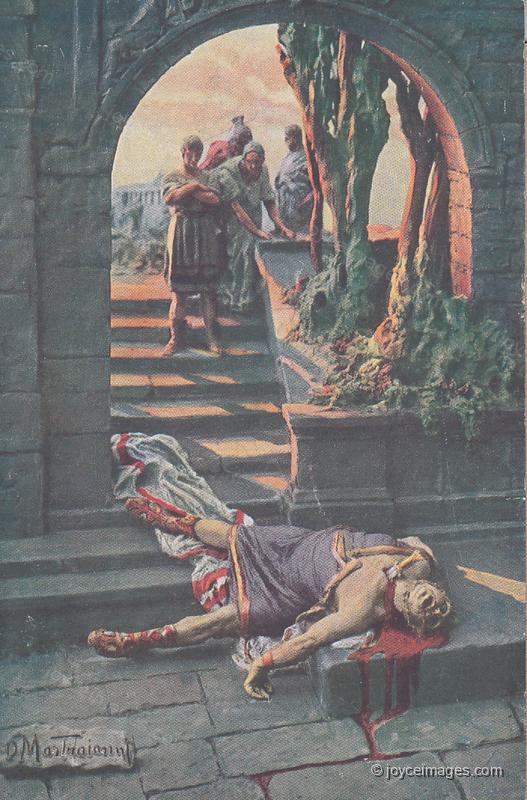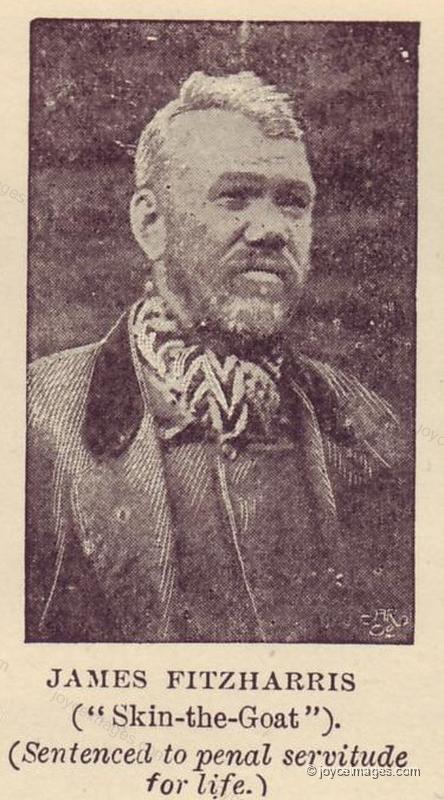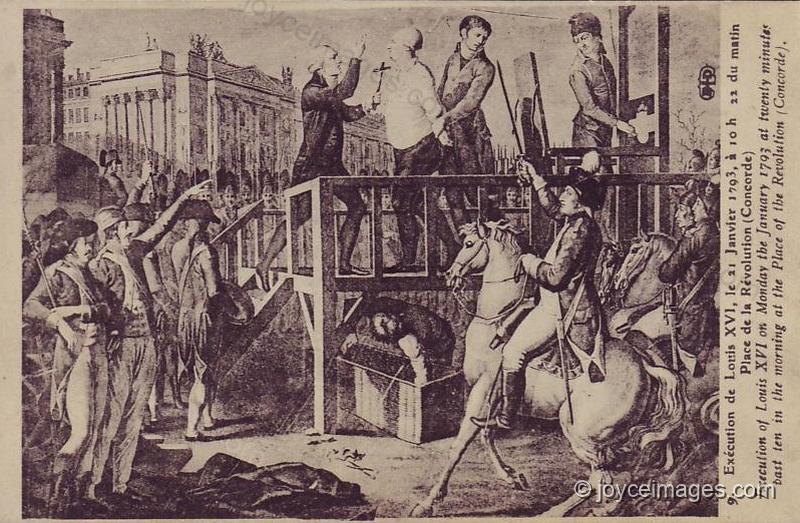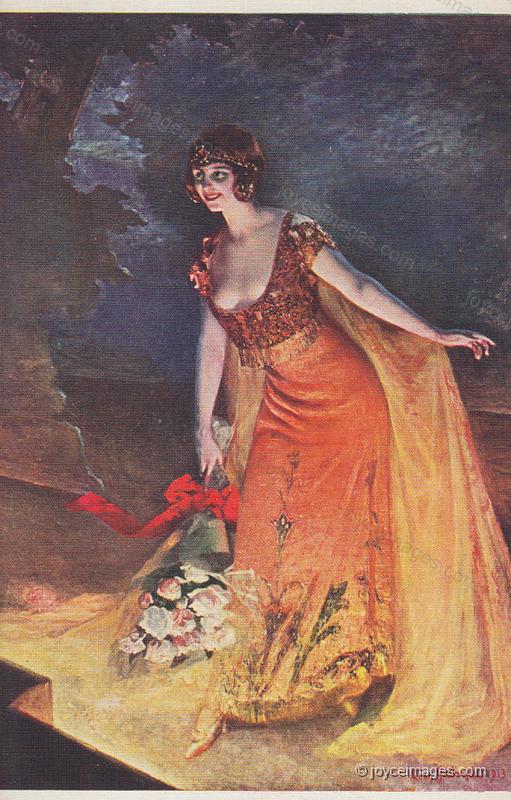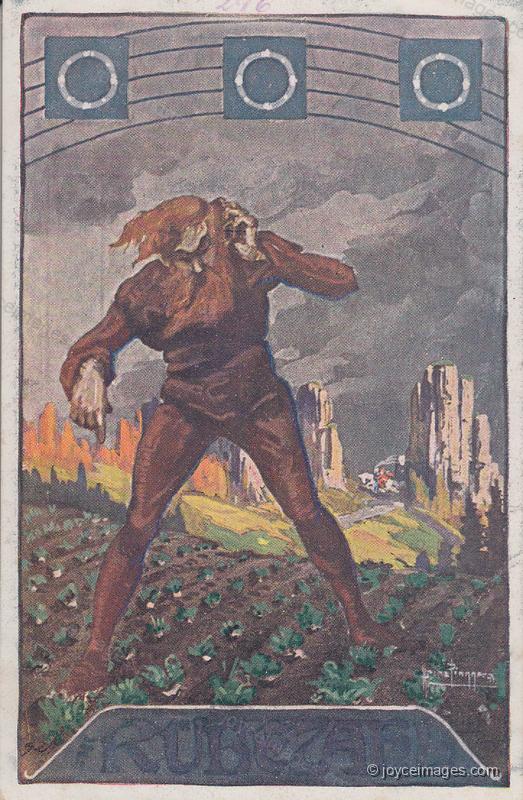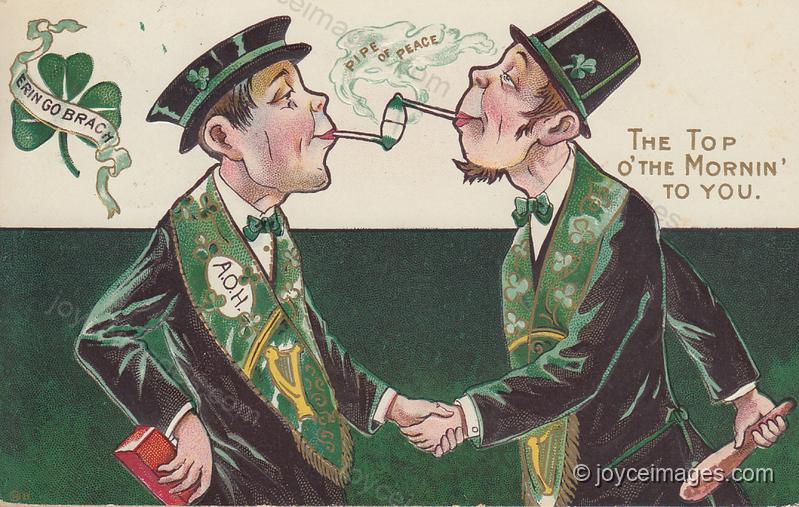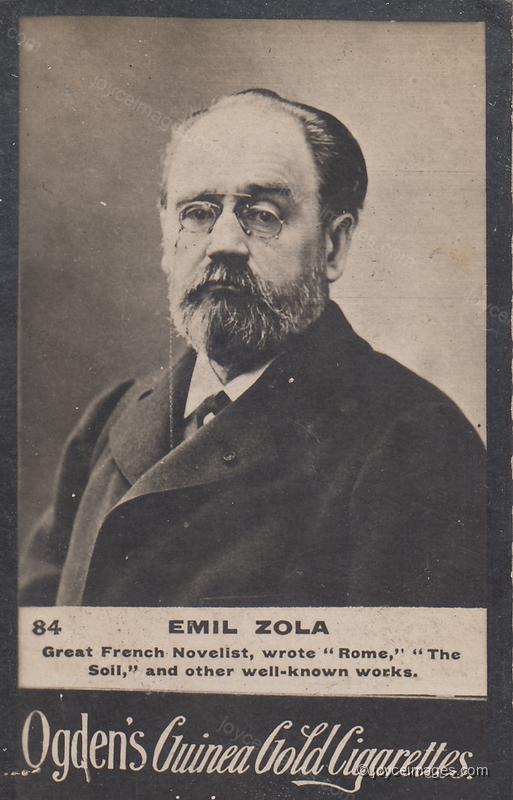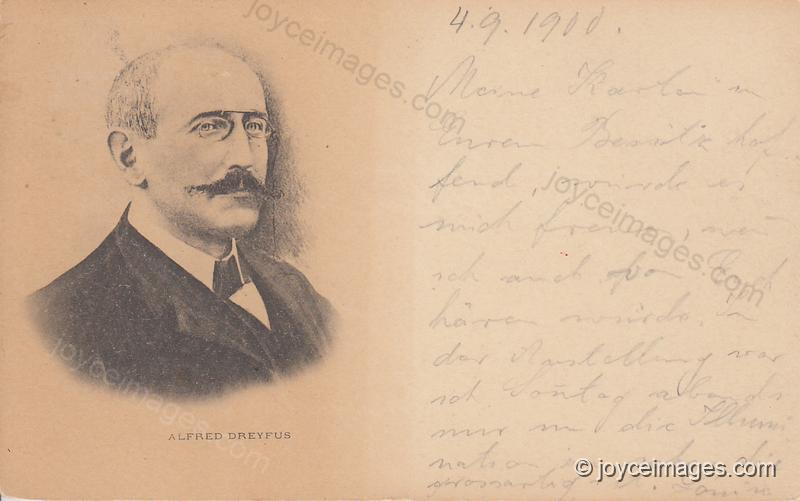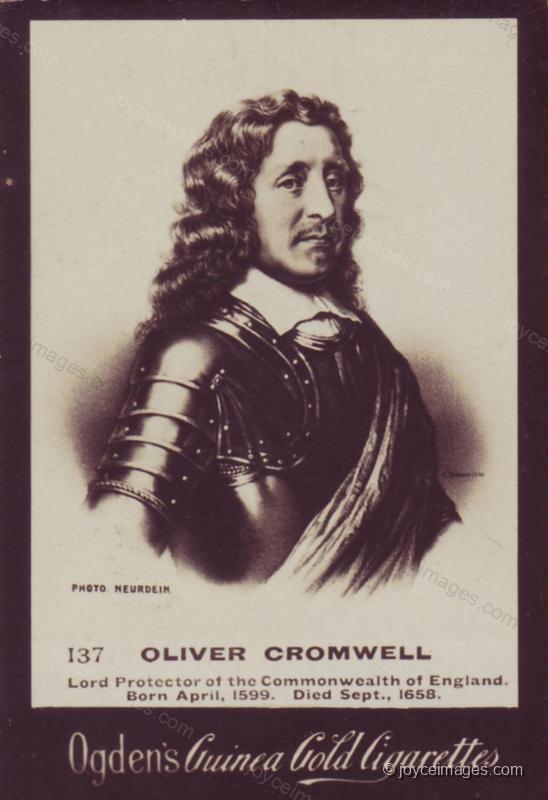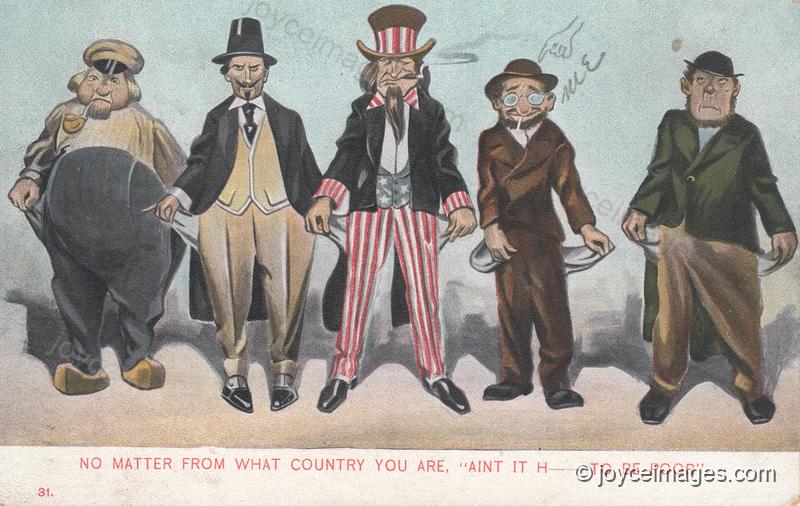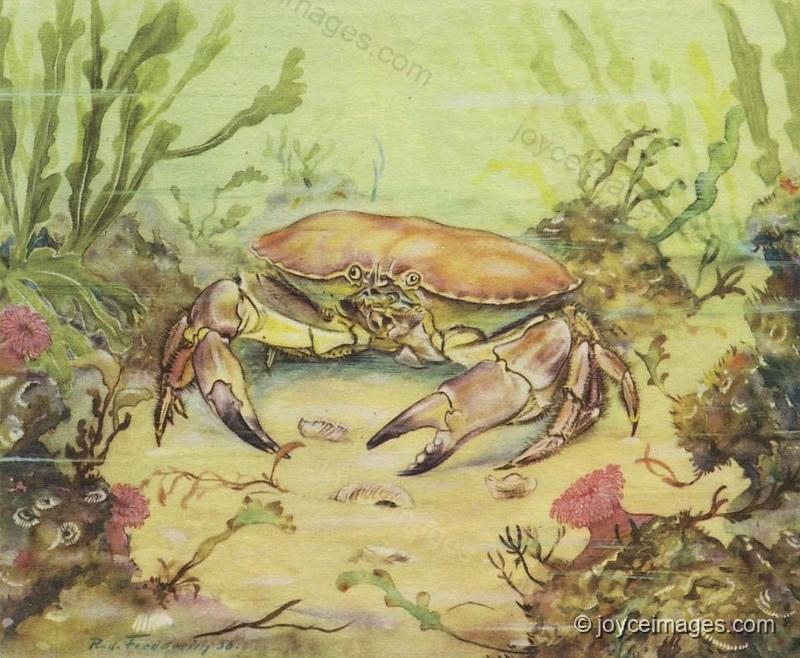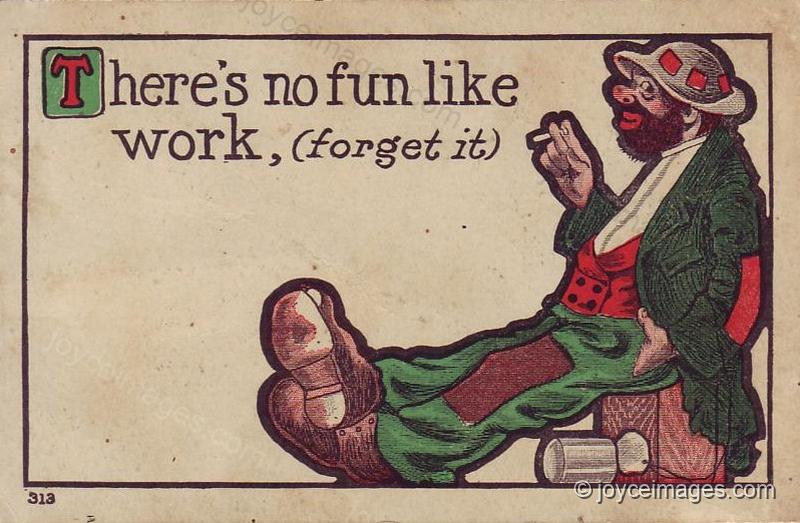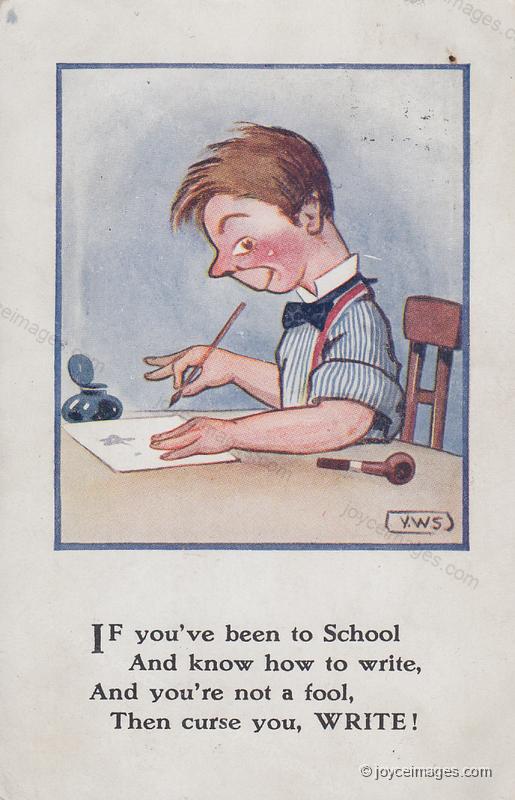"From inside information extending over a series of years Mr Bloom was rather inclined to poohpooh the suggestion as egregious balderdash for, pending that consummation devoutly to be or not to be wished for, he was fully cognisant of the fact that their neighbours across the channel, unless they were much bigger fools than he took them for, rather concealed their strength than the opposite." (U16.1029)
"Another little interesting point, the amours of whores and chummies, to put it in common parlance, reminded him Irish soldiers had as often fought for England as against her, more so, in fact. And now, why? So the scene between the pair of them, the licensee of the place rumoured to be or have been Fitzharris, the famous invincible, and the other, obviously bogus, reminded him forcibly as being on all fours with the confidence trick, supposing, that is, it was prearranged as the lookeron, a student of the human soul if anything, the others seeing least of the game. And as for the lessee or keeper, who probably wasn't the other person at all, he (B.) couldn't help feeling and most properly it was better to give people like that the goby unless you were a blithering idiot altogether" (U16.1040)
"and refuse to have anything to do with them as a golden rule in private life and their felonsetting, there always being the offchance of a Dannyman coming forward and turning queen's evidence-- or king's, now - like Denis or Peter Carey, an idea he utterly repudiated." (U16.1050)
"Quite apart from that he disliked those careers of wrongdoing and crime on principle. Yet, though such criminal propensities had never been an inmate of his bosom in any shape or form, he certainly did feel and no denying it (while inwardly remaining what he was) a certain kind of admiration for a man who had actually brandished a knife, cold steel, with the courage of his political convictions (though, personally, he would never be a party to any such thing), off the same bat as those love vendettas of the south, have her or swing for her, when the husband frequently, after some words passed between the two concerning her relations with the other lucky mortal (he having had the pair watched), inflicted fatal injuries on his adored one as a result of an alternative postnuptial liaison by plunging his knife into her," (U16.1054)
"until it just struck him that Fitz, nicknamed Skin-the, merely drove the car for the actual perpetrators of the outrage and so was not, if he was reliably informed, actually party to the ambush which, in point of fact, was the plea some legal luminary saved his skin on" (U16.1065)
"In any case that was very ancient history by now and as for our friend, the pseudo Skin-the-etcetera, he had transparently outlived his welcome. He ought to have either died naturally or on the scaffold high." (U16.1069)
"Like actresses, always farewell positively last performance then come up smiling again. Generous to a fault of course, temperamental, no economising or any idea of the sort, always snapping at the bone for the shadow. So similarly he had a very shrewd suspicion that Mr Johnny Lever got rid of some £ s d. in the course of his perambulations round the docks in the congenial atmosphere of the Old Ireland tavern, come back to Erin and so on. Then as for the other he had heard not so long before the same identical lingo as he told Stephen how he simply but effectually silenced the offender." (U16.1072)
"— He took umbrage at something or other, that muchinjured but on the whole eventempered person declared, I let slip. He called me a jew and in a heated fashion offensively. So I without deviating from plain facts in the least told him his God, I mean Christ, was a jew too and all his family like me though in reality I'm not. That was one for him. A soft answer turns away wrath. He hadn't a word to say for himself as everyone saw. Am I not right?" (U16.1081)
"All those wretched quarrels, in his humble opinion, stirring up bad blood, from some bump of combativeness or gland of some kind, erroneously supposed to be about a punctilio of honour and a flag, were very largely a question of the money question which was at the back of everything greed and jealousy, people never knowing when to stop." (U16.1111)
"— They accuse, remarked he audibly.
He turned away from the others who probably and spoke nearer to, so as the others in case they." (U16.1116)
He turned away from the others who probably and spoke nearer to, so as the others in case they." (U16.1116)
"— Jews, he softly imparted in an aside in Stephen's ear, are accused of ruining. Not a vestige of truth in it, I can safely say. History, would you be surprised to learn, proves up to the hilt Spain decayed when the inquisition hounded the jews out" (U16.1119)
"England prospered when Cromwell, an uncommonly able ruffian, who, in other respects, has much to answer for, imported them. Why? Because they are imbued with the proper spirit. They are practical and are proved to be so. I don't want to indulge in any because you know the standard works on the subject and then orthodox as you are. But in the economic, not touching religion, domain the priest spells poverty. Spain again, you saw in the war, compared with goahead America. Turks. It's in the dogma. Because if they didn't believe they'd go straight to heaven when they die they'd try to live better, at least so I think. That's the juggle on which the p.p's raise the wind on false pretences. I'm, he resumed with dramatic force, as good an Irishman as that rude person I told you about at the outset" (U16.1122)
"and I want to see everyone, concluded he, all creeds and classes pro rata having a comfortable tidysized income, in no niggard fashion either, something in the neighbourhood of £300 per annum. That's the vital issue at stake and it's feasible and would be provocative of friendlier intercourse between man and man. At least that's my idea for what it's worth. I call that patriotism. Ubi patria, as we learned a smattering of in our classical days in Alma Mater, vita bene. Where you can live well, the sense is, if you work." (U16.1133)
"Over his untasteable apology for a cup of coffee, listening to this synopsis of things in general, Stephen stared at nothing in particular. He could hear, of course, all kinds of words changing colour like those crabs about Ringsend in the morning, burrowing quickly into all colours of different sorts of the same sand where they had a home somewhere beneath or seemed to." (U16.1141)
"Then he looked up and saw the eyes that said or didn't say the words the voice he heard said, if you work.
— Count me out, he managed to remark, meaning work.
The eyes were surprised at this observation because as he, the person who owned them pro tem. observed or rather his voice speaking did, all must work, have to, together.
— I mean, of course, the other hastened to affirm, work in the widest possible sense." (U16.1146)
— Count me out, he managed to remark, meaning work.
The eyes were surprised at this observation because as he, the person who owned them pro tem. observed or rather his voice speaking did, all must work, have to, together.
— I mean, of course, the other hastened to affirm, work in the widest possible sense." (U16.1146)
"Also literary labour not merely for the kudos of the thing. Writing for the newspapers which is the readiest channel nowadays. That's work too. Important work. After all, from the little I know of you, after all the money expended on your education you are entitled to recoup yourself and command your price. You have every bit as much right to live by your pen in pursuit of your philosophy as the peasant has. What? You both belong to Ireland, the brain and the brawn. Each is equally important." (U16.1153)
